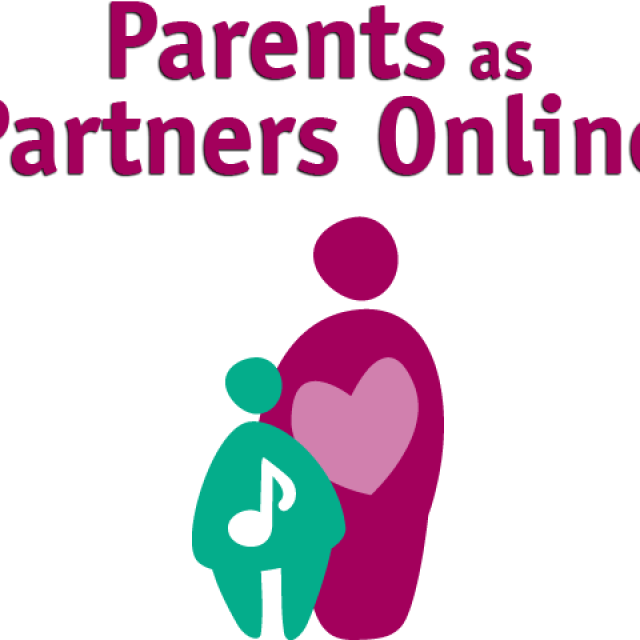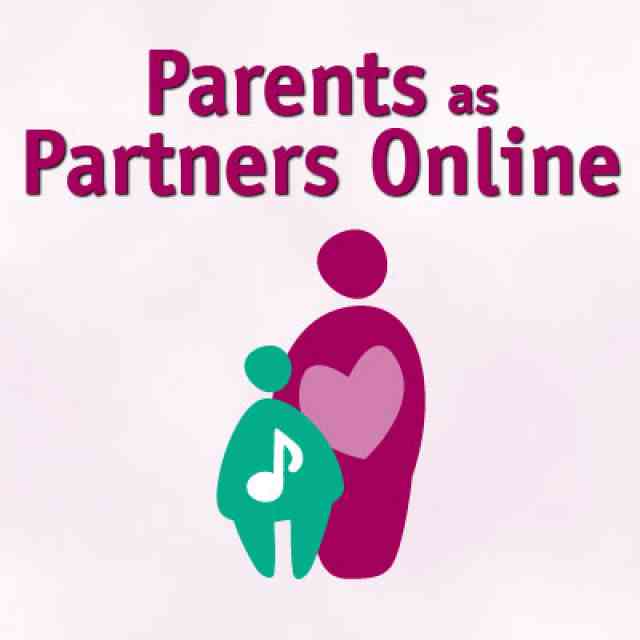From the video series, Parents as Partners Online 2015
Hi my name is Brittany Gardner, and I’m a cello teacher in Salt Lake City. I’m excited to be participating in Parents as Partners, and I hope that what I have to say today will be helpful for you.
I have spent time in all three corners of the Suzuki Triangle. I was a student first and then have been a teacher for 15 years. I’ve also been a Suzuki parent for four years, and I can tell you that while my time in the parent corner of the triangle hasn’t been very long, my growth from that vantage point has been tremendous. I want to share some insights with you that I’ve had as a teacher first and a parent second that have been helpful to me as I’ve been working with my children.
Before I talk about some specifics, I want to point out one crucial difference I found in the perspective between the teacher and the parent. That is, when a student comes to me for a lesson, they walk in the studio and all I see is possibility. I don’t know their full story. I don’t know the problems in their life or the challenges they may be facing. I don’t know what their limitations are. All I see is where we can go. How we can grow. What goals we can reach together. It is a wonderful privilege as a teacher to see a child’s potential in front of me.
On the other hand, as a parent, you know the whole story. You know what’s going on right now in your child’s life. You know what difficulties they have; you know what struggles they’ve overcome. You know what you perceive as their limitations, and sometimes that can get a little bit heavy and a little bit discouraging. I submit to you that the full knowledge of your child’s narrative only serves to make their triumphs and their successes that much more beautiful. You understand them because you know the journey that it took to get there. Recognize it as a privilege to sit in the parent corner of the triangle and to see the full story of your child evolve.
I want to share some specific ideas with you today that I learned first as a teacher, and now try, every day, as a mom to implement in my own life.
-
The first is, how important it is to believe in the capabilities of our children. To let this belief motivate our actions, our emotions, and our language as we work with our child. If we fall short of certain goals or don’t reach certain benchmarks at a certain period of time, it only means that we are still on our way there. It doesn’t mean it is not possible. I could cite scientific study after scientific study about the power of positive thinking and positive language. But I don’t need to do that, and you don’t need to. You already know from your own experience that positivity fosters growth and happiness. Use that as you work with your child. Believe them, and they’ll come to believe in themselves.
-
The second point that I think is so important for us as parents is to work as partners with our teacher. To speak respectfully to them and about them to follow through with the assignments that they give us, to attend the events that they so carefully plan for their studios, to recognize that assignments are given and activities scheduled with our child’s best interest at heart. Reach out to your teacher when you have questions or concerns. If you feel there’s part of your child’s narrative that they should know that will give them a greater understanding of where your child is coming from or what your child’s needs are, let them know and work as an active partner with them in the education and the love of your child.
-
The third point that I hope we remember as parents is that all choices have consequences. Now I’m sure you’ve probably had this discussion many times with your own children. Don’t we all? “If you go to bed late, you are going to be tired. If you eat only junk food, you’re not going to grow and be healthy, or you’re going to have a tummy-ache.” It’s important for us as parents to realize that our choices have consequences. If we choose to lose our temper during a practice session, it’s not going to be a good experience, and our child will be reluctant to work with us again. If we fail to follow through on the assignments that our teacher has given us, our child won’t grow in the way they otherwise could have. If you choose to involve your child in many different activities, more than just music, that’s ok. But your child’s growth trajectory will be different from another child who chooses to solely focus on one activity. There is nothing wrong with this, but it is so important that we as parents take responsibility for our choices and don’t don’t get upset when our results are different from somebody else who has made different choices.
-
The fourth point I want us to remember is how important it is to give our children a peer group. When I was ten years old, I attended a Suzuki Institute in Salt Lake City, Utah, and I was randomly placed with three other girls in a chamber group. It was magic. We became best friends instantly, and we stayed friends all the way through high school. These ladies are still my dear friends to this day as adults. We live in different corners of the country, but it doesn’t matter. We are connected through our love of music and through our shared experiences. My friendship with them is what kept me going through those teenage years when I felt like my life was so busy and so dramatic and full of so many life changes choices that it could get a little overwhelming. I knew that if I gave up my music studies, I would also give up my friendship and my association with these ladies, and that wasn’t something I was willing to do. I’m so grateful for their friendship because it kept me going through those tricky years. The wonderful thing about a peer group for your child is that it also creates a peer group for you. As you are attending these activities with your child, you will know the other parents that are attending these activities too that have similar goals and similar struggles. You can use these parents as inspiration and sounding boards. You can use them for motivation and also as friends. That’s a wonderful blessing that can come from the peer group that you provide for your child.
-
The fifth point that I hope we as parents always remember is that the best practice is consistent practice. It’s like flossing your teeth or eating your vegetables, it’s just got to be done every day, and there’s no way around it. Someone who is growing, who is playing beautifully, who is excelling is someone who practices consistently. I tell my students all the time in the studio, “There is no substitution for repetition.” If you want to get good at something, you have to do it. There is no way around it. I have found this as a mother too. We just set our practice times; this is when we practice, this is when we do it, and we do it every day. It’s not easy to always carve out that time to practice in a busy family schedule, but it’s so much easier to do it every day than to try to start up again after a break. I promise! For my oldest daughter, we’ve broken her practice down into three compartments. She has green cards she does before school; she has pink cards she does after school, and then she has yellow cards she does by herself. The green and the pink cards are with a parent. The yellow cards are her own to do so it fosters some independence and helps her to take responsibility for her own growth and her own practicing.
-
The sixth point I hope we remember as parents is how crucial it is to remember to keep in mind our child’s experience. You and I are adults, and we have schedules, and we have other obligations, and sometimes we can let our own agendas get in the way and our own schedules especially of the love that could be had as we work with a child. Set goals with your child in mind. Celebrate the successes of your child and remember that a child learns by doing. They learn by trying. They learn by making mistakes. They learn by imagining and doing creative, kind of goofy stuff sometimes. Today in practice, my cellist daughter wanted to play her lullaby for her baby doll. I would have rather just have her play the piece and get it over with, but I got up, I went to her room, and I got the baby doll and brought it into the practice room. She played the most beautiful lullaby I had ever heard. It was her experience, and it was important that I remember that.
-
The seventh point I hope we remember is that practice is meant to produce growth and growth comes from struggle. If you are struggling, it just means that you are growing. It doesn’t mean that it will always be hard all the time, it just means there is growth happening right now. You are always on the edge of what is mastered vs. what is a new skill when you are helping your child grow. Remember that you shouldn’t worry, you should trust the growth process. If you are consistent, if you are patient and you are trying, then you and your child will have success. My violinist started as a three-year-old, and we had plenty of tantrums at the beginning of our experience. I don’t mean just from her. It was hard to get started. But, four years later, the other day in practice, she said to me, “Mommy, I love to play the violin.” that did not happen on the first day. And that doesn’t happy every day. It does happen because we were consistent and we tried.
-
The eighth point that I hope we remember as parents is how important it is to adapt. The truths that we follow and that we use as we try to teach our children such as, “Nurturing by love,” “Caring for the whole child,” those will not change, but the way we implement them for our child will change. You will not practice the same way today that you will practice next year because your child will have grown and you will have grown too. You will change from being 100% involved in the practice, to being less involved as your child gains maturity and skill and independence. Things will change. But the truths will not. Because you know your child’s whole story, you will best know how to adapt for them.
The magic of the Suzuki method is that it focuses on the growth of the whole child and the development of their heart. I promise you as you follow these principles as a parent and nurture your child with love, with consistency, with patience and goodness, your heart will grow as well.








